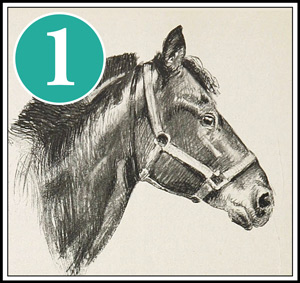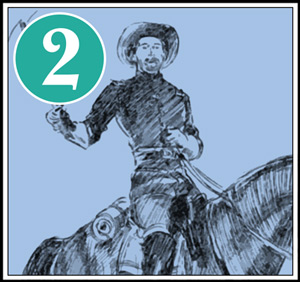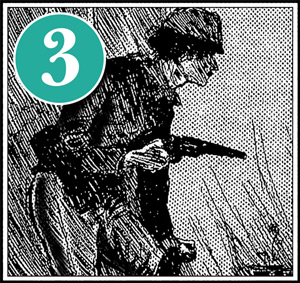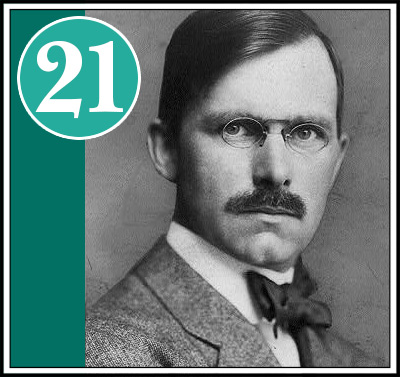
Stories from the Royal Humane Society
Episode 21•
Stories from the Archives of the Royal Humane Society
• IT IS not so surprising that there is heroism in the world, as that there is so much of it.
Podcast: Play in new window | Download
Subscribe: Apple Podcasts | Email | TuneIn | RSS

SHOW NOTES ____________
Stories from the Archives of the Royal Humane Society
By Ray Stannard Baker
IT IS not so surprising that there is heroism in the world, as that there is so much of it. In the single year 1899, the Royal Humane Society rewarded no fewer than 756 persons for rescuing life from drowning and suffocation. This was only in one department, as one may say, of heroism. Other hundreds of lives were saved from fires by firemen, from street and tramway and railroad accidents by the police, from danger at sea by the life-saving service, to say nothing of the many cases which come under none of these classifications.
And then there are the scores of humble heroes who are never heard of beyond the narrow precincts of a neighborhood, and those not braver, but less fortunate, who are the victims of their own heroism, who perish with those whom they go forth to save. For every Nelson who is honored, there are 10,000 unknown heroes, as brave in the true essence of bravery, who are never rewarded, and who do not expect or desire reward.
The Royal Humane Society presents its medals only for rescues from drowning and suffocation, and yet in the 125 years of its existence its cases have run far into the thousands, only British subjects, of course, being considered. It is not my purpose to write of the history or the interesting work of the Royal Humane Society, but rather to give an account of a few of the strange and remarkable cases of humble heroism which have recently been brought to its attention.
And first of Brown and Brand. Brown was a football player, a well-knit, muscular fellow, thirty years old, by profession a miner. Brand was a member of the Diamond Fields Horse of South Africa. Both worked in the De Beers mine near Kimberley. On the afternoon of June 5, 1897, there was trouble in the thousand-foot level. Those outside saw shouting, half-naked Bantus come plunging out of the mouth of the tunnel, wild with terror. Behind them, creeping in a thick, slow-moving, and yet irresistible mass, flowed a stream of blue mud.
No one knows quite the reason, but sometimes a tunnel in the diamond mines strikes soft earth, and there follows a rush of mud, the greatest terror of the mines. The mud does not burst outward with explosive violence, as water might do, instantly alarming the entire mine; but, a miner having turned his back, it bulges from the tunnel end, flows outward heavily and silently, and when the miner turns again, it is upon him, ready to swallow him up; and thus it fills the tunnel, a thick, viscid, suffocating mass.
Such was the mud rush of June 5. After the count had been made of those who had escaped from the tunnel, it was found that two Bantus were missing. Knowledge as to the place where they worked made it probable that the mud had caught them without warning; but there was still a bare possibility that they had been able to reach the hundred-yard rise or pass—that is, a room where the tunnel was much enlarged for the passing of trams. Even though the tunnel was filled with mud, here they might yet find air enough to keep them alive for some hours. But the tunnel mouth was already vomiting the thick blue ooze. It was filled from roadway to roof. When the flow stopped—and no one could tell how soon that would be—there was yet a hundred yards of mud to dig away before reaching the rise where the Bantus were supposed to be. That would take a long time—so long, that the two miners were given up for lost, without more ado.
But the rush ceased sooner than was expected, and the manager at once set his men to work digging away the mud. All that afternoon, all night, and all the next forenoon they worked steadily without making any noticeable impression. Late in the afternoon, however, the mud began to fall away a little from the roof of the tunnel. It was presumed that the imprisoned Bantus were already dead from suffocation, and yet there was one chance in a thousand—the one chance that a hero always takes. This gave Brown and Brand their opportunity.
There was now a space of some dozen inches between the tunnel roof and the top of the stream of mud. Brown proposed crawling in; Brand agreed. Their friends urged them not to risk almost certain death for the sake of two black Bantus, for they could not tell at what moment the mud rush would begin again and fill up the tunnel, and they knew how little air there was to breathe, and how probable it was that this little was full of poisonous gases.
But Brown and Brand stepped up, and each with a miner’s lamp in his hat crept into the cold blue ooze. The mud was too thick to permit of swimming and too thin to bear their weight, so they were compelled to struggle along in the most toilsome and exhausting manner. In places where the tunnel roof was unusually low, they cleared away the mud with their hands and thrust their heads through. Sometimes the space was so narrow that the mud reached up to their noses, and all the while the air became fouler and fouler.
Their lamps went out soon after they entered, and they had no way of relighting them, but crept onward in absolute darkness. From time to time they shouted, and at last, just as they were ready to turn back, for they had become chilled and much exhausted, they heard faint shouted replies. This gave them new heart, and they pushed onward, finally reaching the rise. Here they found the Bantus, who had now been imprisoned upward of twenty-nine hours, in a condition of almost helpless exhaustion. The return, though the mud stream was now a little lower and there was more room to breathe, was terrible beyond description; for they were compelled not only to force their own bodies through the mud, but to drag the two natives after them.
Frequently they stopped in the dark to rest, and sometimes, as they relate, they felt that they never could go on again. At last, however, gasping for breath, they saw the light glimmering in from the tunnel mouth, and shortly afterward friends dragged them out. Every part of their bodies was coated thick with mud, their hair was matted with it; but they had saved the lives of the two Bantus—white blood for black. One feels that such heroism as this is belittled with rewards, and yet it is satisfactory to know that the deed of Brown and Brand was appreciated. Not only were they rewarded substantially by the mine manager, but both now wear the silver medals of the Royal Humane Society.
The Society watches with keen eye for brave deeds in every part of the earth or sea where -flies his Majesty’s flag; but a large majority of the cases are in England, Scotland, and Ireland, and the accounts of them are homeric in their simplicity. A boy falls into the Thames; a man pulls off his coat without a moment’s thought and jumps after him; both are rescued. There was the case of the second officer of the steamship Sultan, bound down from Calcutta to Jeddah. You may find it in Document 28,627; it is told with the dry formality of a log-book report, which locates everything by latitude and longitude.
It seems that it was July and hot in the Indian Ocean. A Lascar fireman named Esnolla, rushing up from the hell-hole of heat in the stokers’ room to get a breath of fresh air, slipped overboard. There are those to whom a Lascar more or less would be a small matter, especially when an immense sea was running and there were sharks abroad. But they heaved a life-buoy after Esnolla, and the captain brought the Sultan sharply around, and gave orders to lower a boat. But watch as he would, the lookout could see no Lascar, for the sea ran too high; nor were they able to lower the boat. However, after wearing the steamer several times, they sighted a black blotch in the water and saw a hand lifted. Collins, the second officer, seized a line and jumped overboard.
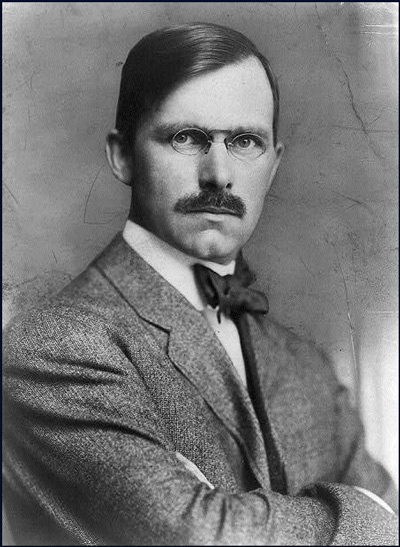
SOME of the Society’s cases, besides telling a story of heroism, throw an impressive side-light on the strange happenings in little-known corners of the earth, where any day may bring a thrill of adventure. Such is the story of Alfred J. Swann.
Among the jungles of Central Africa, where wandering Englishmen come in Stanley helmets to trade celluloid buttons and stove-pipe hats for elephant tusks, there is a little native village called Kota-Kota. It is on the shore of Lake Nyassa, and most of the white men who come there die the first year. But over one hut flies the British flag; and in the doorway, under the flag, Swann sat, days on end, representing the authority of the Queen, and seeing that the elephant tusks were properly traded.
One day an Englishman named Johnstone came to Kota-Kota to hunt elephants, and while going out from Swann’s village into the jungle an elephant stepped on him. Natives brought Johnstone in and laid him at Swann’s door. He was unconscious, with a broken leg and arm. The nearest doctor was sixty miles away, on Lokoma Island in Lake Nyassa. Swann felt Johnstone’s heart; it was still beating feebly. Although there was every promise of a dark and stormy night, he succeeded in getting a sailboat, and by hook and crook he manned it with natives. Then he lashed the injured man to a stretcher, fastened him firmly under the seats, and set out. For two hours they made good time; but the wind deepening, they were compelled to shorten sail. As the night advanced, the blacks grew cold and terrified, and lay down under the mats to die. Swann could not even kick them into helpfulness. The sea rapidly grew so wild that he could not make enough sail to run away from it, and the waves washed in over the gunwales and beat over the unconscious man in the bottom.
Swann was at the helm, and in order to cover his friend more effectually he must leave his place. After much persuasion and some force, one of the natives was prevailed upon to take the helm. Swann was spreading a piece of canvas over the injured man, when the frightened native allowed the boat to go about a little. Instantly a huge wave came over the quarter and washed him overboard. Swann turned as he heard the helmsman shout, and saw him struggling in the water.
Quick as a flash Swann cut the main sheet, and the sail flew out with a bang; then, waiting not an instant, he plunged into the water. It was so dark he could not see the native, but being a strong swimmer he struck out for the spot where he judged he might be. The boat was left to shift for itself, the natives moaning helplessly under the mats. For some moments Swann swam about hopelessly, every moment seeing his only hope of safety, the boat, drifting further away. Then suddenly the native came up almost under him; he seized him by the hair, turned him over, and struck out for the boat. It was a terrible pull back in that high sea, with such a burden, but at last Swann grasped the gunwale. He called for the other natives to come and help, but none would stir.
At last, by almost superhuman effort, he succeeded in getting his half-drowned helmsman into the boat and then in following himself. The boat was almost full of water, and it required the hardest work to prevent instant foundering. The next day Swann reached Lokoma Island, having been nearly twenty-four hours on the voyage. Strange as it may seem, Johnstone was still alive, and with good attention he ultimately recovered. Out of Central Africa came the news of this heroic deed, and down into Central Africa went the medal of the Society.
A man may grapple with a terror that he knows, with right good will, even though the chances are against him; but it is the unseen terror that tries the soul of fortitude. It was an unseen terror that Perrin and Walker met that day in Wrexham.
Hesketh was assistant manager of the Wrexham gas works. He had come around early one bright October morning—a Sunday morning—to see that the machinery was in working order. They heard him among the purifiers, and Perrin, going out, saw him descending one of the little ladders that led to the chamber beneath one of the oxide-of-iron purifiers. Perrin was a gas-stoker.
Presently Hesketh came up.
“The water seal is forced,” he said hurriedly, and a moment later he returned with a plug. Perrin advised him not to go into the gas chamber; so did Walker, who had just then arrived. Walker was the manager’s son.
“Nonsense!” said Hesketh, and they saw him disappear under the purifier. The air seemed clear and good; apparently there was no danger. Suddenly they heard Hesketh shout, then all was still.
“I’m going down,” said Perrin.
They tried to prevent him, but he too went down. He was gone several minutes. They called to him, but there was no reply; they called more loudly, and still no answer.
Walker came with a rope. He fastened it hastily about his body, and before any one could object he was on the ladder. The other men held the rope. From out of the chamber came the rank, suffocating odor of gas, but Walker went down the ladder swiftly. At the bottom he paused an instant, peering into the dark. There lay Perrin stretched full length on the floor with his hand gripped in Hesketh’s collar. Perrin had dragged the assistant manager some distance, and had then been overcome and had fallen. Walker made a rush for the men and tried to fasten a rope around Hesketh. His eyes seemed bursting from his head; he felt himself falling, and ran wildly for the ladder. They helped him out, and he soon recovered his breath. The flow of gas was constantly increasing, but Walker went down again, holding his breath, made another dash, and succeeded in getting the rope under Hesketh. Then he ran out again.
Four or five long breaths and he was at it again. This time he drew the rope around Hesketh, but it slipped from his numb fingers before he could tie it. He came out staggering. The fourth time he tied the rope, and those above pulled Hesketh out. An instant later Walker was down in the death chamber for Perrin. The rope was finally fastened, and Perrin also was lifted out. Walker fell unconscious. They worked over the three men diligently, using artificial respiration and almost every other resuscitation device. Walker recovered consciousness immediately, although he was much exhausted. Perrin lay for an hour before he showed any signs of returning life, then he, too, recovered slowly. But Hesketh never breathed again. In due course of time the deed of Perrin and Walker came to the attention of the Royal Humane Society, and Walker was awarded a silver, and Perrin a bronze, medal.
ONE other story from the records of the Royal Humane Society I like especially to think about, because the hero was an obscure negro seaman, sailing in an out-of-the-way corner of the earth, and yet his bravery was found out, and two of the greatest nations of the earth strove to see which could do him the greater honor. It seems that nothing speaks louder for the growing appreciation among men of simple unselfishness, for that is the true essence of bravery.
It was a tropic night off the Cayman rocks in Nicaragua. The sea was as smooth as a pond, and the schooner Dolphin rested upon it almost motionless, with every sail set. For hours the helmsman had dozed at his place, and the crew and passengers, some twenty men in all, were lying about the deck, sleeping, it being too warm to go below. Thompson, the master, slept with the rest. The Dolphin was bound down from Prinzapulca to Bluefields, and she was almost within sight of her destination. Nothing could exceed the quiet peacefulness of the night.
About two o’clock in the morning the helmsman sprang suddenly from his place, shouting. Thompson was instantly on his feet. Off to the seaward there was a huge, black, moving mass of clouds, rising out of the ocean. Thompson gave orders to shorten sail, but he had barely time to turn around before the blast struck them with terrific force. It was such a squall as comes only to those southern seas. The full-set sails furnished ample leverage, and within ten seconds the Dolphin was bottom up, her passengers and crew struggling in the water. She was a flat-bottomed, center-board boat of some forty-eight tons; she had been long in southern waters, and her sides were slimy and barnacled.
First came Wilson McField, swimming. McField was a negro, a subject of Great Britain. All his twenty-seven years of life he had known these waters, and he swam like a seal. Fortunately the vessel’s helm lay deep in the water, owing to the weight of the anchor and chain which had dropped out when the vessel turned. Here, by grappling hard, but not without being severely cut by barnacles, McField succeeded in climbing on the ship’s bottom. Then he shouted to the others, and one by one, as they reached the vessel’s bottom, he pulled up five of the crew. But not all were saved. Bull Monrad, a passenger, went down within two feet of the boat. Cerf, Kister, and two Nicaraguans were never seen after the vessel turned.
Even after the crew was safely perched on the Dolphin’s bottom they had to cling their best, for the sea had now risen, and the wind was blowing half a gale, although the worst of the squall had passed. And thus they sat for over two hours, drifting at the will of the sea. Then a strange thing happened.
Anderson, the cook, asserted that he heard pounding from within the vessel. They all listened and heard nothing. A little later Anderson again asserted that something was drumming on the ship’s bottom under him. They thought that Anderson had been “turned” by the accident; but upon listening again, they all heard it distinctly, Anderson even insisting that he also heard voices.
Some of the more superstitious had their own theories of this; but as the night dragged itself through, and the pounding continued, they finally made up their minds that some one was imprisoned in the cabin. They discussed the matter until it was broad daylight, and all the while the pounding was growing fainter. None of the white men could propose any way of saving those in the cabin, if there really was any one imprisoned. At last McField said he would dive under and into the boat.
They assured him he would not be able to get out again any more than those who were already there. But he insisted.
They had secured a coil of rope that had been dragging from the vessel. One end of this was held by the men on the ship’s bottom, the other end McField took in his teeth. Then he dove from the vessel into the sea, and quickly disappeared. He went down swiftly, passed under the gunwale, and then rose through the hatch. It was pitch dark, and the interior of the vessel was full of disturbed cargo and empty barrels and boxes. McField dove in among them fearlessly, holding his breath, and made for the cabin. He knew that if the men were really there, and had air enough left to breathe, he would be safe enough; but if not, he also knew that he would probably never get back alive.
The rope kept catching, and once he drove his head into a post with terrific force, but he kept on steadily. Finally, concluding that he had reached the cabin, he rose quickly, and an instant later his head was out of water. And yet, so foul was the air and so narrow the space between the top of the water and the ship’s bottom that he could scarcely -breathe. Everything was in absolute darkness; he could see no men, but just at that moment he heard again the familiar knocking. He called out. At first there was no answer; then he heard voices, faint but familiar. Swimming in the direction from which they seemed to come, he found two men braced against the cabin sides and holding their heads above water. Here they had been for upward of six hours, knocking and knocking. McField recognized one of them as a young rubber cutter named Mallitz, the other was a native Spanish-Nicaraguan called Obando.
Both fell upon McField, clamoring to be saved, so that he was compelled to threaten them with instant death unless they obeyed him. He fastened the rope around Mallitz and gave the signal to pull. Mallitz took a long breath and went down. McField dived into the water with him. Mallitz was panic-stricken and entangled himself in the hatchway. McField lost precious seconds freeing him, so that when at last they went out under the gunwale both were nearly drowned. Mallitz was quite unconscious, and McField was more dead than alive when they reached the surface. They pulled Mallitz aboard, but McField would not follow.
As soon as the rope was again free, he took it in his teeth and dove a second time, found the hatch and entered the cabin. Obando was almost uncontrollable with exhaustion and panic, but McField finally secured him with the rope, and both having taken long breaths, the signal was given to pull up. This time the trip was made without accident, and on reaching the surface both men were drawn on board.
About noon they sighted the steamship Yulu, bound from Bluefields to Great River, and they were soon rescued, having been nearly twelve hours on the ship’s bottom. They found that the Yulu had already picked up a Spaniard who had escaped on a hatchway door; all the others were lost.
In course of time, and in a roundabout way, the story of McField’s bravery came to the attention of the United States Government, and he was awarded a medal and fifty dollars in gold. Later the news reached England, and McField being a British subject, the Royal Humane Society awarded him a silver medal.
• • • • • • • • • • • • • • • • • • • • • • • • • • • • • •
By subscribing, you will automatically receive the latest episodes downloaded to your computer or portable device. Select your preferred subscription method above.
To subscribe via a different application: Go to your favorite podcast application or news reader and enter this URL: https://clearwaterpress.com/byline/feed/podcast/

